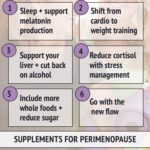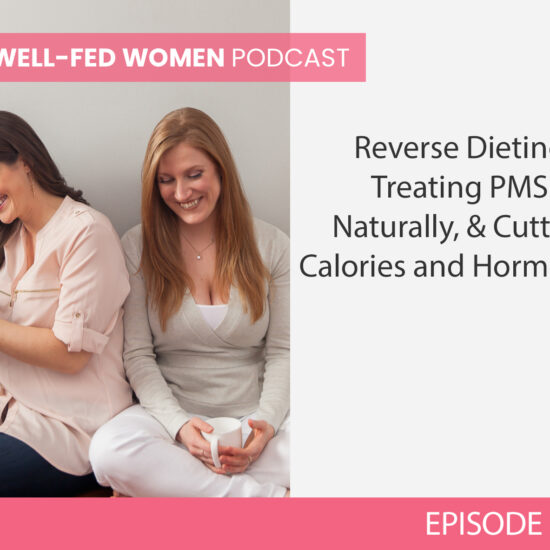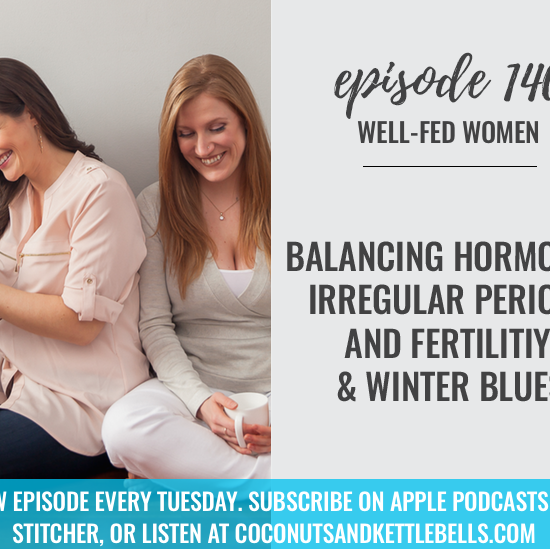This post may contain affiliate links. Please read our disclosure policy.
In the time leading up to menopause, most women will experience some unwanted symptoms. Here are common signs you’re in perimenopause, and natural remedies for perimenopause symptoms.

For most women, symptoms of perimenopause come in hot and heavy and happen out of nowhere. One day you’re able to handle your wine, sleep fine, and your cycles are regular, and the next day you’re moody, having hot flashes, and unable to sleep at night.
If you’ve found yourself asking “Where did this come from? Why is this happening? And how can I make this easier?“, you are certainly not alone.
While perimenopause is majorly misunderstood and under-discussed, just like puberty, perimenpause is a transitional time that happens to every woman when her ovaries start producing less estrogen and progesterone.
And despite what most women hear from professionals, perimenopause does not have to be an awful, gut-wrenching time that you just have to endure. There are some incredible natural remedies for perimenopause that will support your body and help you manage symptoms. Let’s do this!
Jump to:
What is Perimenopause?
Perimenopause is a transitional period of time when a woman’s cycle becomes irregular as she approaches menopause, or the end of menstruation. The catalyst for this? A diminishing ovarian reserve.
Women are born with a specific number of eggs, and as you age, the number of eggs remaining—also known as your ovarian reserve—diminishes. As ovarian reserve declines, you stop ovulating regularly and your ovaries produce less estrogen and progesterone. When you haven’t had a cycle for over 12 months, you’re officially in menopause.
The most frustrating thing for women? Perimenopause doesn’t happen overnight. It’s the wind down of your reproductive years—sort of in the same way puberty is the ramp up to your reproductive years. Perimenopause can happen for years, and symptoms can come and go.
During perimenopause, you might have abnormally long or short cycles, or skip your period for months at a time. Because you’re not regularly ovulating, your progesterone levels drop. FSH and testosterone also drop. But the real reason you’re feeling out of sorts? Estrogen is on a bit of a roller coaster: sometimes rising high and then plummeting back to low. When estrogen is high, you have symptoms that resemble PMS, and when it’s low, you’re more likely to experience hot flashes or vaginal dryness.
When Does Perimenopause Begin?
It’s different for everyone! The age perimenopause begins depends on a variety of factors, including your genetics, birth control use, number of pregnancies, and even your physical activity.
Most women go through perimenopause in their mid to late forties. On average, perimenopause lasts about 3 to 4 years, but it can sometimes last up to 10 years. It’s basically the time since symptoms begin, until you’ve reached menopause, which is when you haven’t had a period for more than 12 months.
Research shows certain factors can contribute to an earlier perimenopause, including smoking and even lack of sun exposure. This matters because early menopause is associated with cardiovascular disease, osteoporosis, stroke, and all-cause mortality.
There’s no one tell-tale sign you’ve begun perimenopause. The best indicator is when you start to notice the symptoms.
If you’re not yet 40 and start experiencing the symptoms of perimenopause, don’t assume you’re just starting early. Chronic stress, which leads to elevated cortisol levels can mimic perimenopause symptoms. The good news? There are many things you can do to balance hormone levels naturally, and natural remedies for perimenopause symptoms.
Symptoms
So, how do you know if your in perimenopuase? Here are the most common perimenopause symptoms:
- Irregular periods: You might have a heavier or lighter than usual period, longer or shorter cycles, and skip months of your cycle at a time. During your reproductive years, this would be concerning, but in perimenopause, this is normal.
- Gradual weight gain: The degrease in estrogen and progesterone combine with the decline in muscle mass can result in an extra 7-10 pounds during perimenopause. Increasing protein intake and strength training can help.
- Hot flashes and night sweats: Hormone fluctuations are to blame for the radical shifts in temperature that lead to waking up drenched or a mid-day meltdown. Research shows more than 80% of women experience this, but the severity varies.
- Insomnia or sleep disturbances: Hormonal fluctuations can make falling and staying asleep harder. It also becomes harder to function with little sleep. If you’ve gotten away with less than 8 hours of sleep, perimenopause might just be the time when that changes.
- Vaginal dryness. Low estrogen can cause thinning and drying of vaginal walls. Some women also experience a decreased libido.
- Mood changes. Increased rates of depression and anxiety are reported in perimenopause, even in women who’ve never experienced them before. Irritability often increases, too.
- Thinning hair and dry skin: Hormonal changes can cause skin to become dry and lose elasticity, and hair to become brittle and thin.

While the symptoms of perimenopause might seem random, overwhelming, and out of your control, there are so many things you can do to prepare before it happens, and natural remedies for perimenopause symptoms that will make the transition much easier.
Preparing For Perimenopause
The best thing you can do to prepare for perimenopause? Take care of your health and support hormone balance in your 20s, 30s, and 40s.
If you’re taking steps to reduce inflammation, balance hormones, and supporting your body’s detoxification processes (and therefore able to properly excrete hormones), your body will be able to manage the hormonal changes much better when perimenopause begins.
This includes eating an anti-inflammatory, whole-foods diet, doing regular movement and exercise, getting a good nights sleep, managing your stress, getting regular exposure to the sun, and having a good community and support system. You can also track your cycles and practice cycle syncing to support hormone levels and learn your flow.
Helpful tip
If you’re still in your reproductive years, get a full hormone panel so you have a baseline to look back on once you’re in perimenopause. All women naturally have different healthy hormone levels, so getting the baseline reading is key to know what’s happening when you retest in perimenopause.
Natural Remedies
1. Anti-Inflammatory Diet
A nourishing, whole foods diet can help your body manage changing hormone levels, support detoxification, and improve metabolic function. Also, research shows increasing your protein intake is crucial as you age, and can help you maintain muscle mass.
Foods that are superb at helping you manage perimenopause symptoms naturally are fresh vegetables and fruits, grass-fed meats, cold-water fish, and pasture-raised eggs, and probiotic foods. Reach for foods rich in bioavailable nutrients, including iron, b-vitamins, fat soluble vitamins, and omega-3 fatty acids.
Research also shows shifting to higher quality carbohydrates can benefit women in perimenopause/menopause, specifically when it comes to managing insulin sensitivity. Try shifting around your macronutrients, specifically increasing protein intake, and reducing refined carbohydrate intake.
2. Improve sleep quality
Sleep is more important than ever during perimenopause, and harder than ever to get. Do whatever you need to do to improve sleep quality, not limited to ear plugs, a face mask, and kicking the dog out of the bed! A wind-down routine is also key: swap alcohol and caffeine for calming chamomile tea, and wear blue light blocking glasses after sundown to promote melatonin production. Melatonin production is key for supporting your circadian rhythms.
3. Manage stress
Chronic stress not only causes HPA axis dysfunction, it also directly impacts your hormones. And because your hormones are already in flux, extra cortisol only adds fuel to the flame. If you don’t mitigate stress and/or remove what is causing you chronic stress, you won’t be able to balance your hormones naturally.
4. Support liver detoxifcaiton
Your liver is responsible for metabolizing hormones. If your liver is sluggish or overburdened with endocrine disruptors, alcohol, or even pesticide residue on food, it will struggle to detoxify. You can support your liver by eating cruciferous veggies daily such as broccoli and cabbage, eating foods rich in heme-iron and b-vitamins such as grass-fed meats and organ meats, eating sulphur-rich foods such as onions and pasture-raised eggs, and cutting back on alcohol. Which brings me to my next point…
5. Cut back or eliminate alcohol
Unfortunately, alcohol is not your friend in perimenopause. The liver and kidneys are already taxed detoxing changing hormones, plus it disturbs sleep. Research shows it can make night sweats and hot flashes worse for some women. Eliminating alcohol will help balance your hormones by getting used hormones out of your system.
6. Stay off the scale
Continuing your healthy diet and exercise routine is great. Obsessing over every half pound gained? It’s not doing you any favors, as it only causes elevated cortisol, which makes shedding weight more difficult. Gaining a few pounds is normal, in part because fat cells produce estrogen, and your body is trying to ensure you’ll have adequate estrogen after menopause. This is another time to remember body and weight changes are a normal part of life. Your body changes and it is OK.
6. Swap cardio for weight training
Excessive aerobic activity increases cortisol production. In stead, swap in more gentle exercise like walking or swimming. Weight lifting and short intensity efforts is incredible for perimenopause. It builds strength, balance, bone density, and can improve insulin sensitivity.

Supplements
Supplements and herbals can act as natural remedies for perimenopause by supporting liver health and estrogen detoxification. Of course, make sure to check with a trusted medical practitioner before trying any new supplements and herbs.
- B vitamins: Either a high quality multivitamin or a B complex is ideal. Make sure your vitamin contains methylated folate, NOT folic acid. Perimenopause ups the demand for nutrients, so this is a good idea even if you eat well.
- Magnesium: Magnesium is the one supplement I think just about anyone can benefit from, but especially perimenopausal women. While there are many different types of magnesium, I recommend magnesium lysinate glycinate as it’s incredibly relaxing and can help support sleep. Try a magnesium supplement with l-theanine to help improve sleep quality and improve calmness.
- Herbals: Adaptogens and herbs can positively impact hormones and support difference bodily processes. Experiment and see what works for you based on your symptoms. The most popular ones include holy basil, which is great for anxiety, black cohosh, which helps reduce hot flahses and night sweats, and ashwagandha or rhodiola, which are both great for reducing stress.
For anything more complex, it’s best to have your hormone levels tested and work with a practitioner.
Navigate Perimenopause with Ease
I wish I could promise perimenopause will be a walk in the park, but the truth is, it’s a different journey for every woman! The good news is, there are plenty of natural remedies for perimenopause, both with lifestyle shifts and supplements. You got this!
More Hormone Articles
- Root Cause of Hormonal Acne & Treating it Naturally
- 8 Natural Remedies For Allergies
- Natural Remedies For PMS
- Cycle Syncing Workouts: How to Exercise in Each Phase of Your Menstrual Cycle




